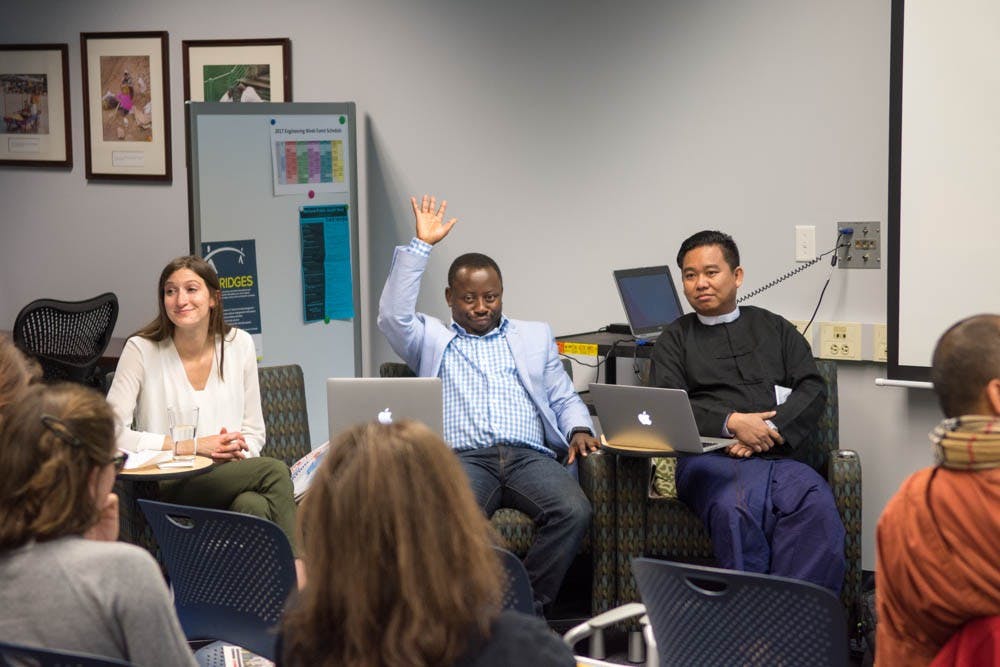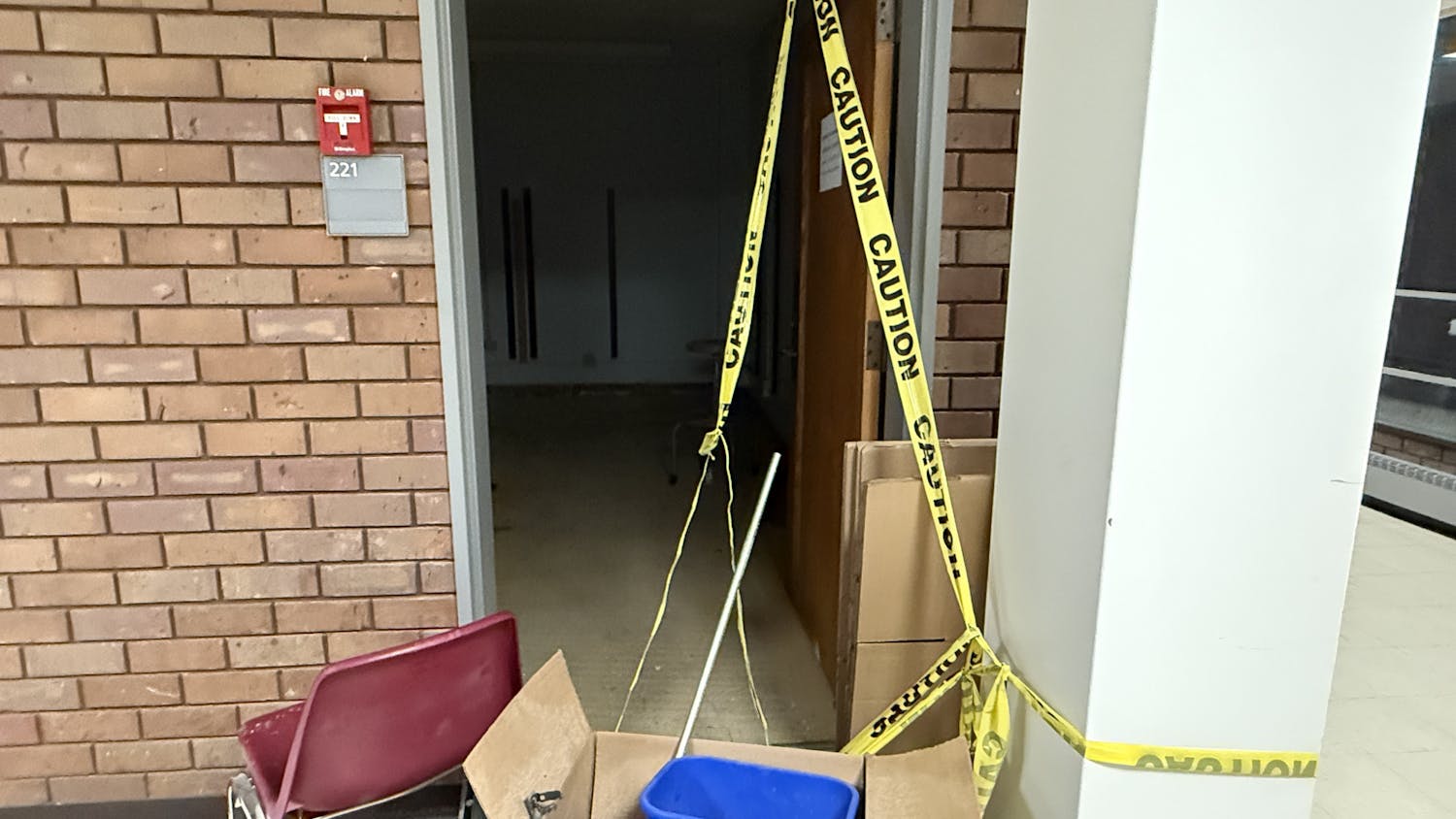Michelle Holler thinks Buffalo has always been diverse, but the recent influx of refugees calls for a discussion on integration in the community.
While incoming refugees came from countries like Italy and Poland, recent Buffalo refugees come from countries like Burma and Rwanda, Holler said.
Holler, the manager of Westside Bazaar, was one of three featured speakers at the Academies’ spring keynote event. The “Building a Global Community” presentation featured leaders from Western New York’s refugee community, including Burmese refugee and activist Ze Yar Swe and Rubens Mukunzi, CEO and editor in chief of Karibu News, a multi-lingual newspaper for local immigrants and refugees.
The speakers discussed refugee and immigrant populations integrating with the Buffalo community and finding job opportunities.
“When refugees get the chance to work in this country, they want to work hard to be successful themselves and for their families and they [also] want to work hard to make this country more beautiful,” Mukunzi said.
Mukunzi emigrated from Rwanda in 2014, where he was a seasoned journalist and popular radio DJ. During his time in Rwanda, he started his own newspaper with a focus in education called Oasis Gazette.
Mukunzi said he fled his country after being “intimidated and harassed for being an advocate for change.”
Despite holding a journalism degree from a Rwandan university, Mukunzi was unable to find a job when he arrived in Buffalo because he did not speak English.
In an effort to help future immigrants and refugees feel less isolated, Mukunzi developed an immigrant and refugee-focused news organization called Karibu News. The goal of Karibu, which is a Swahili word meaning “welcome,,” is to help immigrants and refugees integrate into the Buffalo community, Mukunzi said.
He feels there is a strong need for this publication in Buffalo because of its large immigrant and refugee population. In 2016 alone, there were 16,000 refugees from Congo and 12,000 refugees from Burma, he said.
“Karibu is a bridge between the refugee and immigrant community and [Buffalo] citizens,” Mukunzi said.
The newspaper, which is printed in Spanish, Arabic, Burmese, Nepali, French, Swahili and English, aims to “integrate, inform and help refugees feel more at home.”
“Do we want to build a bridge, or build a wall? That’s what Karibu is about—building a bridge,” Mukunzi said.
Like Mukunzi, Burmese refugee Ze Yar Swe fled his home country for political reasons. He spent time in jail as a political prisoner, charged with dissent for criticizing the Burmese military government.
“The military government makes so many reasons to arrest people,” Swe said. “You cannot even have a copy of the human rights declaration from the United Nations.”
Swe said he was tortured for weeks and sentenced to seven years in prison. During his imprisonment, he was placed with other political prisoners and kept separate from the criminal prisoners.
Political prisoners have fewer rights than criminal prisoners, according to Swe. He said as a political prisoner, his family could only visit him every two weeks. Criminal prisoners can see their family more often and in general have more freedom, Swe said.
After his time in prison, Swe decided to leave Burma because he knew he could be arrested again at any time.
“When someone abuses power, it affects the whole society. The system [in Burma] is the root of the problem,” Swe said.
Swe has tried to create a community in Buffalo, but said it has been difficult because most refugees are not very educated. He said all refugees share a similar experience of being denied human rights, which connects them together.
He believes it is important for refugees to integrate with the community, and for Buffalo citizens to be open and welcoming to refugees.
“People are coming here, many times not by choice, and they come here and want the American dream, which is to start their own business. And by starting these businesses, they are helping the local economy, which is huge,” Holler said.
When people see the success of platforms like Karibu and Westside Bazaar, it makes them more likely to invest in and connect with refugee communities, which helps reduce refugees’ feelings of isolation, Holler said.
Holler stressed that community means “common unity,” and believes citizens, immigrants and refugees should work together.
“We need your contribution and you need our contribution, and we can build a community together,” Mukunzi said.
Maddy Fowler is the assistant news editor and can be reached at maddy.fowler@ubspectrum.com.





